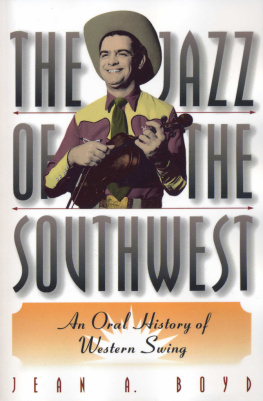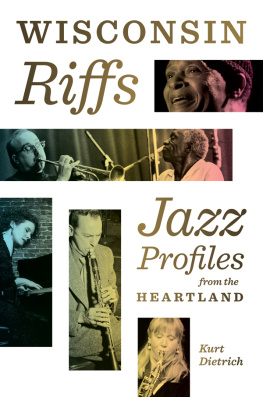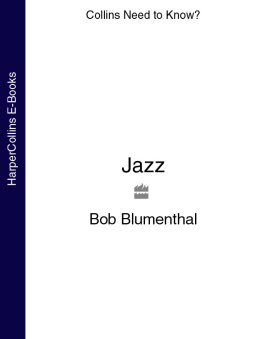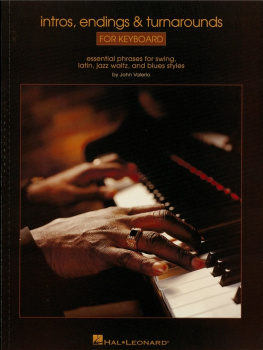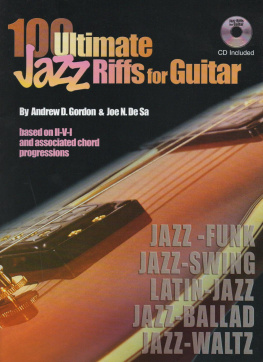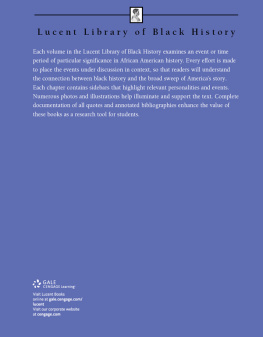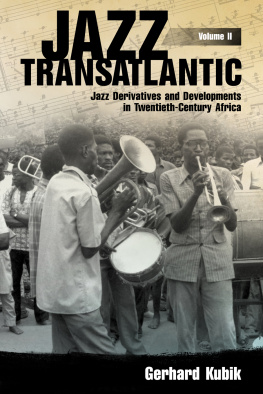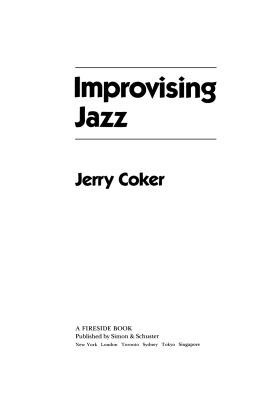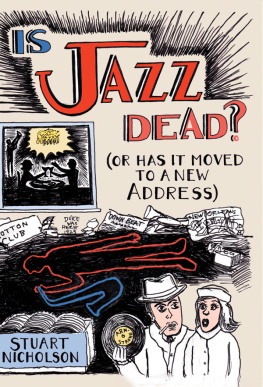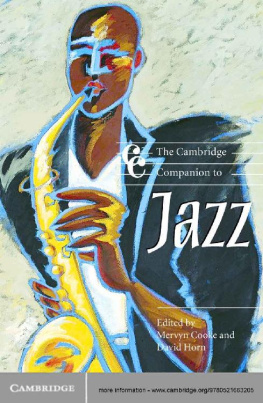Jean A. Boyd - The Jazz of the Southwest: An Oral History of Western Swing
Here you can read online Jean A. Boyd - The Jazz of the Southwest: An Oral History of Western Swing full text of the book (entire story) in english for free. Download pdf and epub, get meaning, cover and reviews about this ebook. year: 1998, publisher: University of Texas Press, genre: Home and family. Description of the work, (preface) as well as reviews are available. Best literature library LitArk.com created for fans of good reading and offers a wide selection of genres:
Romance novel
Science fiction
Adventure
Detective
Science
History
Home and family
Prose
Art
Politics
Computer
Non-fiction
Religion
Business
Children
Humor
Choose a favorite category and find really read worthwhile books. Enjoy immersion in the world of imagination, feel the emotions of the characters or learn something new for yourself, make an fascinating discovery.
- Book:The Jazz of the Southwest: An Oral History of Western Swing
- Author:
- Publisher:University of Texas Press
- Genre:
- Year:1998
- Rating:4 / 5
- Favourites:Add to favourites
- Your mark:
- 80
- 1
- 2
- 3
- 4
- 5
The Jazz of the Southwest: An Oral History of Western Swing: summary, description and annotation
We offer to read an annotation, description, summary or preface (depends on what the author of the book "The Jazz of the Southwest: An Oral History of Western Swing" wrote himself). If you haven't found the necessary information about the book — write in the comments, we will try to find it.
The origins and development of western swing as a vibrant current in the mainstream of jazz.
Jean A. Boyd: author's other books
Who wrote The Jazz of the Southwest: An Oral History of Western Swing? Find out the surname, the name of the author of the book and a list of all author's works by series.
The Jazz of the Southwest: An Oral History of Western Swing — read online for free the complete book (whole text) full work
Below is the text of the book, divided by pages. System saving the place of the last page read, allows you to conveniently read the book "The Jazz of the Southwest: An Oral History of Western Swing" online for free, without having to search again every time where you left off. Put a bookmark, and you can go to the page where you finished reading at any time.
Font size:
Interval:
Bookmark:
The Jazz of the Southwest
An Oral History of Western Swing
JEAN A. BOYD

UNIVERSITY OF TEXAS PRESS,
AUSTIN
Copyright 1998 by the University of Texas Press
All rights reserved
First edition, 1998
Requests for permission to reproduce material from this work should be sent to Permissions, University of Texas Press, Box 7819, Austin, TX 78713-7819.
LIBRARY OF CONGRESS CATALOGING-IN-PUBLICATION DATA
Boyd, Jean Ann.
The jazz of the Southwest : an oral history of western swing / by Jean A. Boyd. 1st ed.
p. cm.
Includes bibliographical references and index.
ISBN 978-0-292-70860-0
1. Western swing (Music)TexasHistory and criticism. I. Title.
ML3541.B69 1998
781.65'3dc21
97-33740
MN
ISBN 978-0-292-79946-2 (library e-book)
ISBN 978-0-292-78321-8 (individual e-book)
DOI 10.7560/708594
In memory of Elwyn A. Wienandt
my teacher, mentor, friend
Thanks, El
Preface
In 1990, when I was searching for a way to combine my musicology and regional Texas music interests, I discovered western swing. I grew up in Texas, so this music was always on the periphery of my musical experience, but I had never paid much attention. Because of my background and training, I began this work with the misconception that western swing was and is country music. I am still amazed that my academic colleagues think that I am writing about country music in Texas.
When I discovered, through listening to the music and interviewing western swing musicians, that western swing was, and is, jazzswing jazz played on traditional country instruments, with all of the required elements of jazz and some of the best solo improvisation to be heardI was excited, and then dismayed by the omission of western swing and its artists from jazz history and style books. I decided to bring western swing to the attention of jazz scholars, who will, I hope, complete the work I have begun.
And this book is just a beginning. It does not pretend to be a definitive history of western swing or a complete stylistic analysis of a topic that is as broad as any in the world of jazz. It is an introduction to western swing jazz and those who pioneered it and continue to recreate it. I have based much of the present study on interviews, but it has been physically impossible to interview every living western swing musician. What I present here is a cross section of players and singers from different time periods and numerous western swing bands. There are many similarities in their stories and one common theme: the music they made and continue to make belongs to the mainstream of swing jazz. They were and are in the same league with Benny Goodman, Tommy Dorsey, and many others, not in the hillbilly category where they were assigned by record executives who could not decide how to classify improvisation played on string instruments. Western swing musicians have nothing against country music and in fact recognize country music as one of many tributaries of their own music. But country is an inappropriate and misleading label for western swing.
Perhaps the time will come when western swing bands and individual western swing musicians will be included in studies devoted to swing jazz. Maybe western swing topics will find a place on the jazz sessions of professional musicology meetings. And, possibly, legendary western swing musicians will one day grace college campuses to perform with jazz ensembles and to direct workshops. When these possibilities are realized, we will learn, once again, that outward appearances do not identify, and certainly cannot limit, the boundless world that is jazz.
I would like to acknowledge the contributions of the more than fifty western swing musicians whom I interviewed and whose insights and memories form the foundation of this study. I would also like to thank the Oral History Institute of Baylor University, and especially Lois Myers and Rebecca Sharpless, who taught me how to conduct interviews, provided me with equipment and research funds, and supervised the students who transcribed numerous interview tapes in an amazingly short time.
To my husband, daughter, and mother, who have accompanied me around the country on my quest for information, helped me with interviews, proofed my writing, and provided endless emotional support, I could not have done this without you. And, finally, I want to express my deep appreciation to my friend Patricia Wienandt, who edited my manuscript and assured me that her husband, my teacher Elwyn Wienandt, would have been proud of my work.
Note to the Reader
Quotations not otherwise identified are from the authors interviews with the musicians, all of which are listed in Works Cited.
Introduction: Western Swing and the Texas Mystique
Western swing, like other styles of jazz, evolved from a mixing of cultural and musical elements. Steel guitar virtuoso Tommy Morrell described western swing as an amalgam of jazz, blues, big band, polka music, country music, Mexican music... everything. Because it is a crossroads for diverse cultures, including Native American, Mexican American, Anglo American, German, French, Cajun, African American, Czech, and Polish, Texas was the birthplace of western swing.
Texas also possessed the socioeconomic conditions that nurtured western swing. In the words of Tommy Morrell, western swing began as prairie music, meaning that its audience consisted primarily of rural folkfarmers and rancherswho made their living off the land. Texas remained a largely rural and agricultural state until well into the twentieth century. In Texas and Oklahoma, the towns that became centers of western swing activity were basically extensions of the rural countryside. Attitudes in Texas towns did not differ essentially from attitudes in rural areas. Western swing was jazz created by and for country folk.
Rural Texans were plain, hard-working people who belonged to the lower and lower-middle classes of Texas society. Interesting parallels can be drawn between western swing and Texas-Mexican conjunto music in that both types of music emerged on the Texas scene at the same time and appealed to similar classes, though different ethnic groups, of people. In his book The Texas-Mexican Conjunto: History of a Working-Class Music, Manuel H. Pea argues that the accordion-led conjunto ensemble and its repertory of polkas was the music of the politically disenfranchised, socioeconomically powerless Texas-Mexican working class, that it helped them secure an identity and, to a certain extent, insulated them from extraneous hostile forces comprised of dominant Anglo-Texans and Americanized, upwardly mobile Mexican-Texans. In a sense, western swing evolved from and responded to a portion of the white Texas population that did not share in the socioeconomic or political power of the upper class, most of whom lived in cities and were involved in business and industry. Like its conjunto counterpart, western swing was the poor, rural, working-mans jazz, and it helped to identify and insulate him from his wealthier, urban neighbors.
Jazz is generally understood to be the product of urban life, but western swing was devised in an essentially rural setting, in country dance halls that served farmers and ranchers across one or more counties. Western swing was down-home, earthy dance music that translated the sounds and techniques of jazz on typically country instruments in a rural, working-class setting. Like conjunto musicians, western swing musicians were of and from the people they servedself-taught musicians who frequently escaped the drudgery of farm and ranch work through their music. But they did not abandon the community of folk from which they sprang. Also like their
Next pageFont size:
Interval:
Bookmark:
Similar books «The Jazz of the Southwest: An Oral History of Western Swing»
Look at similar books to The Jazz of the Southwest: An Oral History of Western Swing. We have selected literature similar in name and meaning in the hope of providing readers with more options to find new, interesting, not yet read works.
Discussion, reviews of the book The Jazz of the Southwest: An Oral History of Western Swing and just readers' own opinions. Leave your comments, write what you think about the work, its meaning or the main characters. Specify what exactly you liked and what you didn't like, and why you think so.

